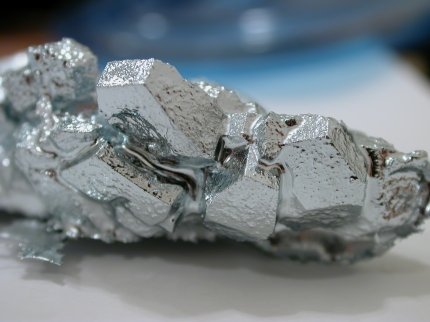The Chinese government has introduced export controls on semiconductor materials used in the production of microcircuits by Western countries, as well as military optical devices.
Points of attention
- China's export controls on key semiconductor materials are affecting supply chains and raising concerns about declining production of advanced chips by Western countries.
- The restrictions on germanium and gallium imposed by China are leading to increased mineral prices in European countries, prompting disruptions in microcircuit production by Western companies.
- China's actions demonstrate a strategy to protect national security interests and respond to Western controls on chips and technology, potentially impacting global chip and technology manufacturing markets.
- The limitations on gallium and germanium supply may result in shortages in the mineral market, affecting production and supply stability for various industries including military and communication equipment.
- Export controls by China could have far-reaching consequences on the global chip and technology manufacturing landscape, not limited to markets within China, thus highlighting Beijing's dominance in key resource supplies.
What is known about the consequences of China's introduction of export controls on the supply of semiconductors to the West
The restrictions imposed by China are said to be affecting supply chain logistics and fueling concerns that the production of advanced chips by Western countries will decline.
It is emphasized that the restrictions imposed by China on the supply of germanium and gallium to Western countries have already led to an increase in the prices of these minerals in European countries almost twice during the last year.
Semiconductors and components of military and communication equipment are made from these minerals.
Beijing imposed the restrictions last year, saying they protect "national security and interests" in response to US restrictions on the sale of advanced chips and chip-making equipment.
Journalists of the publication note that the introduction of restrictions and the introduction of export controls emphasize Beijing's dominance in the global supply of dozens of the most important resources.
According to the US Geological Survey, China produces 98% of the world's supply of gallium and 60% of germanium.

The situation with China is critical. We depend on them - a representative of the company, which is a large consumer of semiconductor materials, explained to the journalists of the publication.
Analysts point out that the Chinese government is demonstrating its intention to limit the economic interests of Western countries.
The goal is to strike back at China's control over access to cutting-edge chips and other advanced technologies.
According to a representative of one of its Western companies, already affected by China's restrictions on exports of semiconductor materials, although some large shipments of Chinese gallium are still being made, overall exports have fallen by about half since the controls were introduced.
If China reduces gallium exports, as it did in the first half of the year, our reserves will be used up and a deficit will arise, the company's representative emphasizes.
Jan Giese, senior manager of base metals at Frankfurt-based trader Tradium, notes that export controls add extra stress to anything outside of China, and another level of complexity for markets that are already difficult to navigate.
What consequences did China's restrictions on the supply of semiconductor materials lead to?
The authors of the material indicate that germanium and gallium are key semiconductor materials for the production of modern microprocessors, fiber optic products and night vision goggles.
Further restrictions on the supply of these minerals by China in general may provoke a disruption in the production of microcircuits by Western companies.
In August, Chinese authorities also announced restrictions on the supply of antimony, a mineral used in the production of armor-piercing munitions, night vision goggles and precision optics.
Before that, Beijing introduced export controls on the export of graphite and technologies used for the extraction and separation of rare earth elements.
Traders note that under the conditions of control over gallium and germanium, each individual batch needs approval - from 30 to 80 days.
This leads to the fact that long-term contracts for the supply of these resources become unreliable.
Applications must specify the buyer and intended use.
Corey Combs, deputy director of Beijing-based consultancy Trivium China, said Beijing's main motivation was to "send signals" that it could respond to US pressure on Chinese companies and vital industries.
Beijing also views export controls in part as a way to ensure its own supply of materials used in the clean energy technologies that underpin the country's industrial modernization, Combs said.




